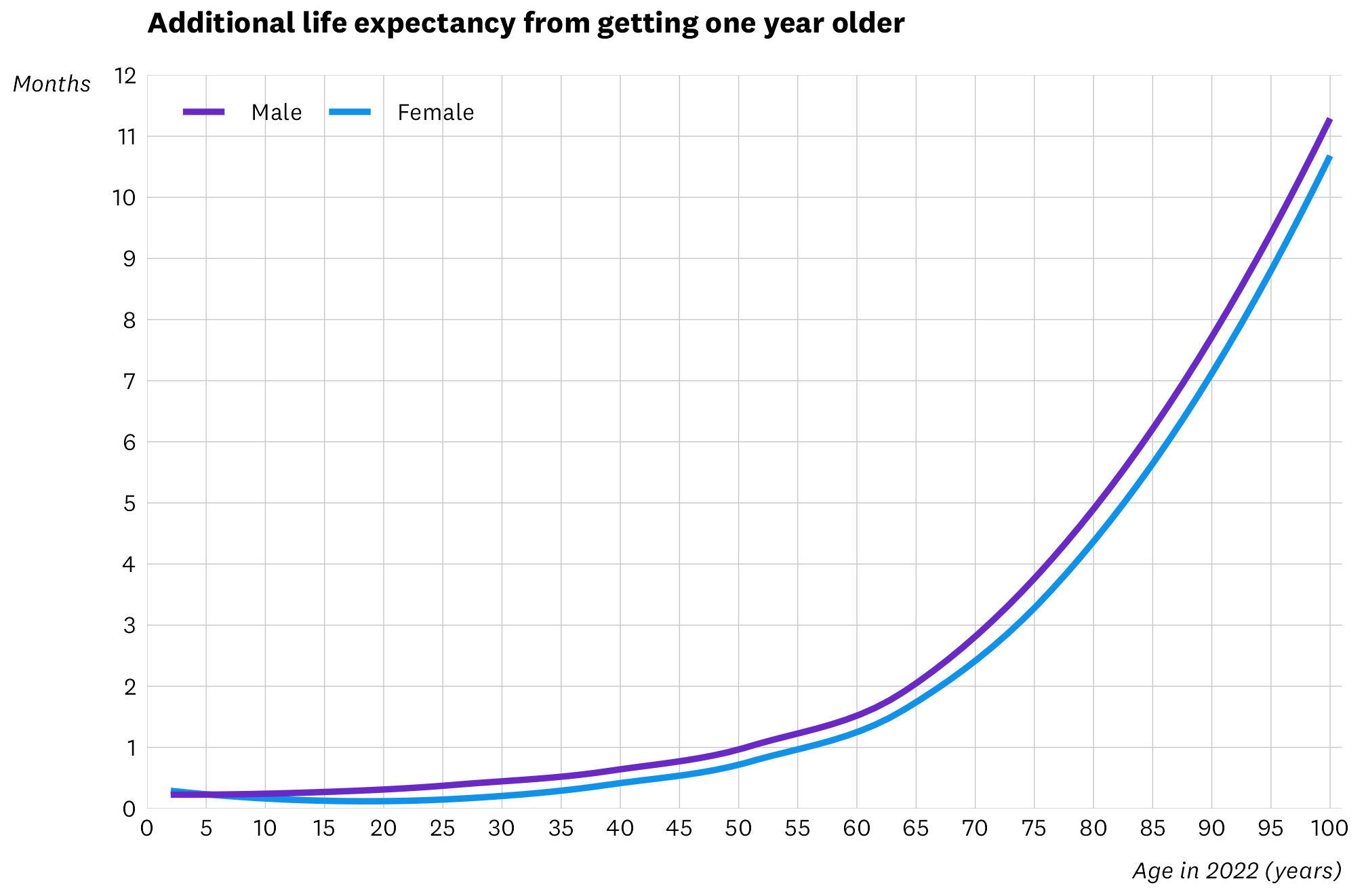I had a birthday recently, which is a good time to remind myself that getting older makes you live longer: the older you are (all else equal), the higher is your life expectancy. Intuitively, getting older is “good news” in the sense that you haven’t died yet, so you’re somewhat less likely to be affected by poor health and more likely to live a bit longer than was expected when you were younger.
Here’s a chart I made from the New Zealand cohort life tables published by Stats NZ. Given the age that you turned in 2022, it shows the additional life expectancy (in months) that you gained from living for another year, compared to what your life expectancy was in 2021 when you were a year younger.

For example, if you turned 55 in 2022, your life expectancy was around one month greater than it was when you were 54. The good news effect of getting older gets stronger and stronger as you age. If you turned 85, your life expectancy is a whole six months greater than it was when you were 84!
These effects add up over time too. So if say you were born in 1980, your life expectancy at birth was 86.6 years if you were female and 83.1 years if you were male. However by the time you turned 40 in 2020, your total life expectancy had increased to 88.6 years for females (+2.0 years) and 86 years for males (+2.9 years). If you make it to your 80th birthday in 2060, you can expect to live to 92.3 if female (+5.7 years compared to when you were born) and 90.9 if male (+7.8 years), based on current projections.
This is truly a reason to celebrate your birthday!
R code for the chart is here.
